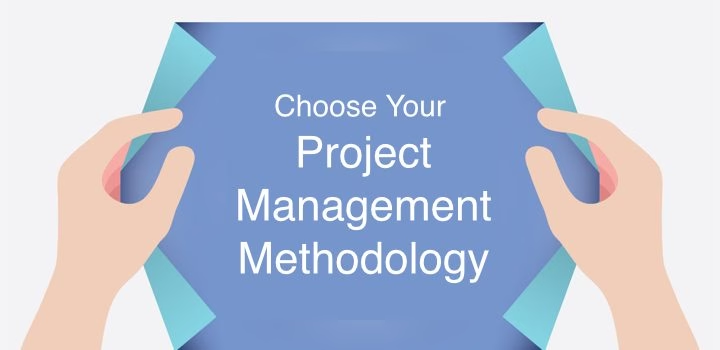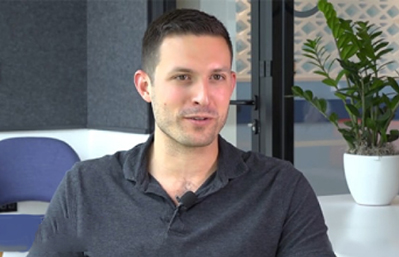- Developers
- Developer Blog
- Project Management Tips
- What are the Top Project Management Methodologies?

profile

By Aran Davies
Verified Expert
8 years of experience
Aran Davies is a full-stack software development engineer and tech writer with experience in Web and Mobile technologies. He is a tech nomad and has seen it all.
Are you interested in knowing the top project management methodologies?
Project management methods help in the correct estimation of project delivery times and budgets. Moreover, they guide the whole team towards the successful completion of the software project.
Let’s see the popular project management methodologies that you can use for your software development project.
Top Project Management Methodologies
Some of the prominent project management methodologies include:
PRINCE2
It is a process-based project management approach. The whole project is planned before the development begins. The focus is to thoroughly plan and organize each stage of the process. It offers more control over the development project.
Key aspects to consider when using PRINCE2
You have likely considered whether to use PRINCE2 (Projects in controlled environments) in your project. This powerful methodology offers many advantages, however, keep the following factors in mind:
- You need to regularly assess whether your software development project remains viable.
- Prepare to plan and control the project at various stages.
- Plan the project roles according to the recommendations of PRINCE2. You should have roles in program management, project board, project management, and the level of team members.
- Focus on learning lessons from earlier projects in your organization and elsewhere. At the same time, document lessons that you learned in your project. You need to institutionalize this learning process.
Adaptive Project Management
It is a systematic approach that focuses on learnings from previous development stages. These learnings help to gradually improve the development practices and related decisions.
Such a structured approach is adopted for project management when the requirements are not clearly defined and are subject to changes during the development process.
Where should you use “Adaptive Project Management” (APM)?
Do you have a highly fluid business environment? Are you noticing the organizational needs changing frequently? Do new technologies, processes, methods, and tools have the potential to drastically alter your business environment?
Hire expert developers for your next project
You could use the “Adaptive Project Management” (APM) methodology, however, keep the following in mind:
- While the PM will apply the “Adaptive Project Framework” (APF), the framework isn’t prescriptive. The PM has the authority to adapt to situations.
- You need to focus on what the client needs since that’s more important than mechanically following processes.
- Proactively remove non-value-added work from the development process.
- Review the project continuously and objectively throughout the software development life cycle (SDLC).
Critical Chain Project Management” (CCPM)
This project management approach helps a project manager to plan and schedule project stages by taking into account the resources used in the critical path or critical chain. The project manager analyzes the dependencies, limitations in resources, buffers, etc.
A project plan is mapped out for situations with restricted resources to complete a project.
The key consideration when using the “Critical Chain Project Management” (CCPM) methodology
If you plan to use CCPM in your project, then you need to understand the constraints of your project first. You can’t apply CCPM mechanically without understanding them. We consider this as the most important factor before applying this methodology.
There can be different constraints, e.g.:
- The estimation for the “solution design” phase may be more than what a realistic estimate should be. Successful projects need realistic estimates, therefore, you need to review the estimate.
- You need to get developers onboarded to start the development phase on time. You have key dependencies on the hiring process.
You need a robust understanding of the constraints by monitoring the project thoroughly.
Critical Path Method
In the critical path method, project managers identify tasks that are critical to project completion. The critical path is the longest chain of stages that need to be completed for the successful completion of the project. It is a resource-utilization algorithm that considers scheduling flexibilities.
When should you use the “Critical Path Method” (CPM)?
We use the acronym “CPM” to denote the popular project management methodology called the “Critical Path Method” (CPM). It can definitely help a project team, however, you should know when to use it.
You need to do the following when using CPM:
- List all project tasks including arranging them in sequential order when applicable;
- Estimate the duration of each task;
- Analyze the dependencies between tasks;
- Determine the project milestones.
While you would probably use project management software for this, it’s a rather complex project management process. It suits complex projects, however, it’s not a one-size-fits-all solution. Use it only for complex projects.
Lean Six Sigma
The origin of Lean project management lies in the manufacturing process adopted by Toyota. On the other hand, a project management body in Motorola first used the term “Six Sigma”. In the modern era, “Lean Six Sigma” is a popular project management methodology.
This methodology uses several effective concepts like “Muda”, “Mura”, “Muri”, etc. to identify wasteful process steps in work processes. Organizations using this methodology remove these wasteful steps and achieve higher productivity.
Hire expert developers for your next project
1,200 top developers
us since 2016
Considerations for using Lean Six Sigma in your organization
While it can deliver significant benefits, there are limitations too. Implementing Lean Six Sigma in one part of the organization can only offer limited benefits. For best results, you need to implement the lean methodology in your entire organization.
Assess whether you are ready for such a cultural transformation.
Waterfall
Among traditional project management methodologies, the “waterfall project management method” is a very prominent one. Historically, different project teams in many key projects have used it. The “Waterfall model” fits projects where the overall scope will not have fluidity.
Take the example of a “Supply Chain Management” (SCM) development project. We all know that SCM software must deliver specific functionalities. While there can be minor variations between two different SCM software products, the scope remains the same.
Managing a “Waterfall project”: Key considerations for using the “Waterfall” methodology
The “Waterfall model” works very well for projects with fixed requirements. You take sufficient time to define your business requirements, and you carefully define your non-functional requirements (NFRs). You finalize these requirements.
Subsequently, you design a technical solution. You proceed with development, testing, deployment, warranty, and maintenance. You will have a detailed review after each phase, which tells you about the health of the project. While it’s a long process, all stakeholders get clarity.
This methodology won’t work if there’s no clarity about the requirements though. If the main requirements change frequently, then the waterfall project management methodology isn’t the best choice. Analyze your business context carefully before adopting it.
Agile
The above discussion about fluid requirements brings us to the topic of iterative development. Modern software development projects often need to use iterations for continuous improvement. Teams first launch a “Minimum Viable Product” (MVP), and then they get feedback from the market.
Depending on the feedback, a “Product Owner” works with the project team to determine which features should be added to the software application. The “Product owner” also helps to determine the priorities of these features.
The “Agile” framework focuses on adding tangible business value to customers. In fact, the “Agile Manifesto” pays a lot of attention to this.
The other aspect that the “Agile” approach prioritizes is the value of teamwork. As we have explained in our guide to “Scrum” teams, Agile teams focus on fostering collaboration.
Considerations to use the Agile methodology
You build small teams that are self-organizing teams. Typically, you create cross-functional teams where developers and testers work together.
“Scrum” teams plan “Sprints”, i.e., iterations in the “Scrum” parlance. These teams conduct “stand-up” meetings to resolve bottlenecks that adversely impact the project. At the end of a “Sprint”, they conduct “Sprint retrospective” meetings to learn lessons.
Hire expert developers for your next project
Analyze whether you can bring this level of customer-centricity and teamwork to your organization. The success of “Agile” projects depends on this.
Considerations while using other agile project management methodologies like “Extreme programming”, “Scrumban”, etc. in your project
You can also choose to use other techniques and methodologies to manage projects, e.g.:
- “Extreme Programming” (XP): XP is an “Agile” software development framework that’s useful in a project where requirements often change. Remember that you should use it only if you have a small development team that’s co-located.
- “Scrumban”: This project management framework combines the structure of “Scrum” and the flexibility of “Kanban”. Does it sound too tempting to you? Remember that you should use it only after carefully considering your requirements. “Scrumban” works well for software maintenance projects, and it can help when you need to give more flexibility to your team.
In some cases, you have already chosen a suitable methodology. You just need a bit of help in integrating the work done by your project team. In such cases, user-friendly templates from other successful project teams can help.
E.g., the UK government provides a useful repository of project and program management resources. You can find easy-to-use templates here.
Are you starting a new software development project?
One of the important steps before starting the design and coding part of your software project is to decide on the right project management methodology and use the related frameworks for project planning and managing the work of different team members.
Software projects usually follow agile project management methodology due to the nature of the market of software products like mobile apps. Read our blog here on how you can build a team for an agile development project.
If you need more assistance in planning and managing your software project, DevTeam.Space can help you. We use an AI-powered agile process to manage the project development effectively while our vetted field-expert developers’ community work on your software product.
You can write to us your initial project specifications via this quick form and one of our account managers will get back to you to discuss more details.
Frequently Asked Questions on project management methodologies
PMM is in essence the guiding principles that are followed for project development. There are quite a few project management methodologies and choosing the right one to fit your project is very important since each has its own pros and cons.
The six most common types of project methodologies used by the project management community are:
Agile.
Scrum.
Kanban.
Lean.
Waterfall
Six Sigma
You will need to closely examine your project and what are the most important development goals, i.e. speed, etc. You will then need to weigh up your development team including time or human resources constraints. Once you have a good idea of these, you can then see which project methodology best fits.

Alexey Semeney
Founder of DevTeam.Space
Hire Alexey and His Team
To Build a Great Product
Alexey is the founder of DevTeam.Space. He is award nominee among TOP 26 mentors of FI's 'Global Startup Mentor Awards'.
Hire Expert Developers




